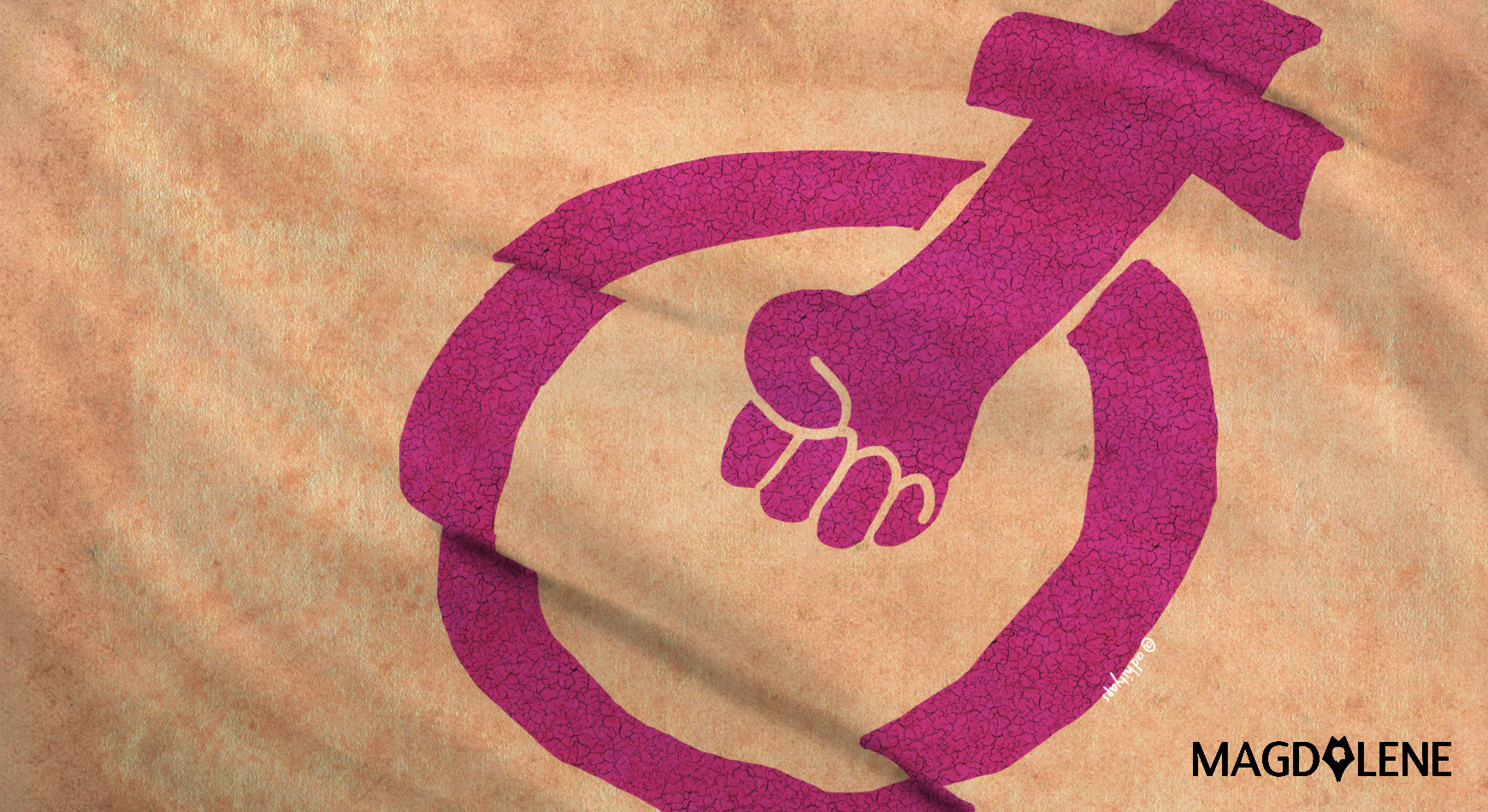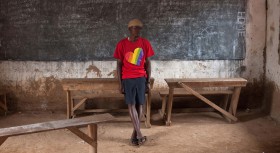From August to September this year I spent a month in Nepal, attending a feminism capacity building training. This 22nd Feminist Capacity Building on Gender, Sustainable Livelihood, Human Rights, and Peace was conducted by Sangat, a network of South Asian gender activists and trainers, and was held in Tewa Center, Kathmandu, Nepal.
For a month, 37 participants from 10 countries in Asia learned not just about gender and feminism, but also about globalization and neo-imperialism, caste-based system, care economy, women’s health and self-awareness. Each session was delivered in participatory method in which we interacted with each other, among ourselves and with the resource persons. All the topics delivered to broaden our perspective in gender and feminism discourse.
Let me share with you what I experienced there. When we discussed about gender, patriarchy, masculinity, and feminism, we were challenged to search for the time and place patriarchy emerged the first time in the society. For most of us, it was an appealing challenge for we had never really thought or discussed about the history of patriarchy. After some time discussing it, we realized that to know the historical aspect of patriarchy means to understand how it works and how complex it is.
Based on that new insight, we internalized an understanding that to fight million years-system is not that easy. We feminists are not a genie that can grant your request within seconds. From that moment on, we were asked to be humble, patient, and resilient in our feminism.
When looking at the Asian context, measuring all factors contributing to the sustainability of patriarchy, we had to factor in the economic system and ideology that sustain patriarchy to this day in our society. These factors were also discussed during the training. We learned and talked about the effect of globalization and neo-colonialization to gender disparity in Asian countries. To be frank, in Asian context, feminism discourse will always relate to post-colonialism study.
Another session that I relate to the most was the Women’s Health and Self-Awareness. In Women’s Health session, we learned about our sexual and reproductive organ. I felt a little shocked and sad at the same time upon learning that patriarchy has always distanced women from their own body and sexuality. My sisters in this training were strong and dedicated feminists, but when we talked about our body, we were dumbstruck. For women to be distanced from their own body, which is their closest friend, is one of the cruelest thing in the world.
In Self-Awareness session, we got to be in touch with our inner sides. In Asian communities, mental health does not get much attention. Even more for a woman. Women have always been blamed for their emotions or emotion-based reactions, but who really cares about the cause of it? Who really cares about women’s mental health? With the loads of work, the trauma they suffer, and the daily stress, do women have the opportunity and safe space to channel their emotion and feeling? In this session, we were given safe space to share, to find ourselves, and to give and find strength from our sisters.
For a month, we were asked to absorb and learn. Moreover, we were pushed to challenge and ruffle concepts we have learned before. We learned to view patriarchy and gender disparity from all sides and to know all the factors contributing to it. We were taught to see a box from all angles.
For a month, we learned not to make assumptions easily. We learned to appreciate perspectives and ideas of other participants. We exercised empathy.
Sangat’s advisor Kamla Bhasin gave an advice that touched me the most, “Be a humble and loving feminist. Be a feminist that concentrate on kindness. Hostility gains nothing.”
She said this while we talked about feminism and how cursing and being hostile will only ruin and damage the feminism and our activism.
It was a great month I spent in Nepal, not just for its beautiful scenery, but for the knowledge and strength I gained there. It was a life-changing moment, a mind-boggling experience that I would never exchange for anything.
I would like to thank Women Volunteers for Humanity (Relawan Perempuan untuk Kemanusiaan), Aceh and Indonesia for Humanity who gave me the opportunity to attend this feminist capacity building. I also hope that in the next years more Indonesian women can join Sangat’s training to strengthen our feminism.
Meutia Faradilla a pharmacist and coffee drinker who ponders about life in between her daily activities. She now lives in Banda Aceh.








Comments